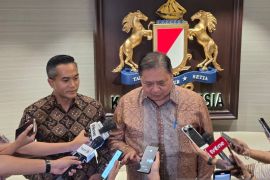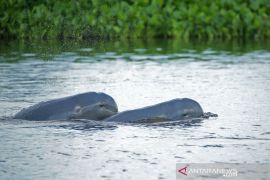The HSBC customers were joined by activists from Greenpeace and other Malaysian civil society organizations, including members of Pertubuhan Pelindung Khazanah Alam Malaysia (PEKA), who handed out leaflets to other customers and passersby at the banks head office in Kuala Lumpur, Greenpeace said in a press statement on Tuesday.
The activity was part of an escalating global effort to highlight the involvement of Europes largest bank in arranging US$16.3 billion of loans (and nearly $2 billion of bonds) to companies whose Indonesian palm oil operations have destroyed vast areas of rainforest, peatland, and orangutan habitats; seized land from local people; operated without legal permits; and caused forest fires, Greenpeace reported.
"We are asking customers to join this movement to urge HSBC to stop funding deforestation. In the past five years alone, HSBC has been part of banking syndicates that arranged $16.3 billion of loans to six companies whose palm oil operations have destroyed vast areas of rainforest, peatland, and orangutan habitats in Indonesia," said Octyanto Bagus Indra Kusuma, Greenpeace Southeast Asia Forest Campaigner.
Greenpeace Internationals recently published Dirty Bankers report documents loans and financial services from HSBC to palm oil companies responsible for destroying rainforest, including orangutan habitat; seizing land from local people; operating without legal permits; abusing workers and using child labour; forest fires; and draining and developing carbon-rich peatland.
Deforestation and peatland destruction by Indonesias palm oil and pulp sectors are widely acknowledged as root causes of forest fires and haze. A study by Harvard and Columbia universities estimates that over 100 thousand adults across Southeast Asia have died prematurely as a result of the 2015 haze crisis, Greenpeace wrote.
Many of these actions breach the laws and regulations that govern Indonesias plantation sector.
Lending loans to these companies also breaches HSBCs sustainability policies.
The financial support provided by HSBC and other international banks contrasts sharply with public opinion and consumer companies that demand palm oil produced responsibly.
Last year, the IUCN changed the classification of the Bornean orangutan from endangered to critically endangered, citing destruction, degradation, and fragmentation of their habitats, including conversion to plantations, as a main reason for the decline in population.(*)
Editor: Heru Purwanto
Copyright © ANTARA 2017










